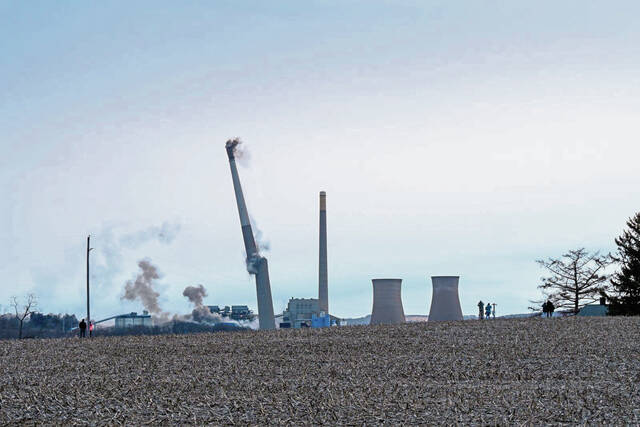It’s still early in 2025, and the “data center” bandwagon is picking up speed, with ambitious plans announced for sites in Westmoreland County and Homer City (“Homer City site: Large gas-fired power plant to support data center,” April 2, TribLive). But before that bandwagon rolls over us, we should be asking the questions: “What will a data center do for a community? If a data center were built here, would it help the people who already live here? Would it make anyone want to move in?”
What we do know, from places like Loudoun County, Va., is that a data center — once it’s been built and begins operating — is essentially a lights-out operation. It houses thousands of powerful computers, consuming enough electricity for an entire city and cooled by millions of gallons of good drinking water every day. Its air conditioners and fans run day and night; its diesel generators start and stop on a regular schedule. But it employs virtually nobody.
Here’s the bottom line: A data center is a huge, noisy, windowless building where electricity and water are turned into money for far-away tech bros and CEOs, with no labor content. High-speed communication lines connect the site to the rest of the world, and the number-crunching taking place inside could be happening anywhere. (We say, “It’s in the cloud.”) So the owners of all those computers, speculating in AI and cryptocurrencies, needn’t care where their data center is built or who’s been living there. They’ll go wherever land, electricity and water are easiest to get.
But location does matter to those who will suffer the economic and social impacts of this decision. A data center drives up the electric and water bills of residents and local businesses, and it preempts infrastructure and investment capital from new industries that would employ people. It destabilizes the electric grid and gobbles up real estate, for the building itself and for rights-of-way for transmission towers and pipelines. Then it just sits there, humming and buzzing behind heavy fences and roving security patrols.
Why, then, is data center development generating so much hype right now? Well, it’s good for the real estate speculators and investment brokers, and (briefly) for the building trades. Those are the ones we’ve been seeing at press events and in news coverage. And their views are echoed by the business roundtables and the technology boosters, then amplified by elected officials who are already greasing the skids for public subsidies, tax incentives and regulatory waivers in order to “win” the competition for bragging rights.
In Homer City, this next-big-thing campaign merges with the strong self-interest of the established natural gas developers. In fact, one may speculate that what’s being sold here is really a natural gas power plant project, wrapped up in high-tech tinsel. Such economic and political motivations are already visible in endorsements of the project: Pump up natural gas sales (and prices), justify drilling hundreds more frack wells and (as a bonus) cash in on temporary subsidies for hydrogen and carbon capture demonstrations.
We’ve already seen where such a bandwagon took the people in Beaver County, with the Shell “cracker” plant. Huge public giveaways, promises of “jobs” and follow-on investments, which turned a pleasant river valley community into an industrial wasteland. The jobs never turned up, and the broad economic impact has been proven negative. Now even Shell doesn’t want the plant.
So, would a data center — or a whole campus of data centers — be good for our community, or bad? If we were given the facts and could listen to our neighbors, we may agree or disagree on the answer. But that may not matter. Because, unless we insist on it, we won’t be asked.
John Detwiler is a board member of Protect PT (www.protectpt.org), a nonprofit education and advocacy organization working in Westmoreland and Allegheny counties.








